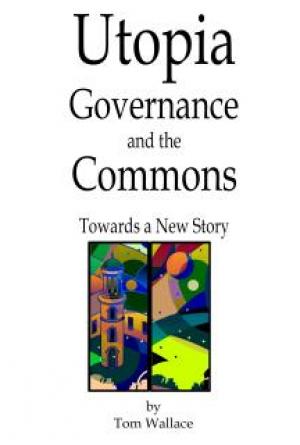Chapter 11
Concluding thoughts
The principled conservative in a nutshell is a vigorous advocate for free markets, entrepreneurship, capitalism, a sound economy, and individual liberty and freedom of action. We aim at creating the conditions for everyone to have an opportunity for success, personal freedom, and personal safety and security, while protecting the most vulnerable in society
The principled conservative wants society to ultimately protect life, liberty, property and the pursuit of happiness of all the world‟s citizens, not just Americans. It doesn‟t mean every country will adopt the same policies, but it does mean their policies will be determined by elected representatives of the citizens in a democratic manner.
The principled conservative vision of 21st century America is a fair society more protective of individual rights and equal opportunity, with a more effective but leaner government. America should remain a beacon of freedom around the world and promote the U.S. Constitution and the democratic republic as worthy models for all people to consider. We need a new national spirit of renewal—not from the government down but from the grass roots up—to result in responsible and accountable government with the goals of helping individuals succeed and be free. While not being anti-government, we are committed to ending government involvement in many areas where it has no business. As Barry Goldwater asked many years ago:
“Who will proclaim in a campaign speech:
“I have little interest in streamlining government or in making it more efficient, for I mean to reduce its size. I do not undertake to promote welfare, for I propose to extend freedom. My aim is not to pass laws, but to repeal them. It is not to inaugurate new programs, but to cancel old ones that do violence to the Constitution or have failed in their purpose, or that impose on the people an unwarranted financial burden. I will not attempt to discover whether legislation is „needed‟ before I have first determined whether it is constitutionally permissible.
And if I should later be attacked for neglecting my constituents‟ „interests‟, I shall reply that I was informed that their main interest is liberty and that in that cause I am doing the very best I can.”53
Perhaps it is poetic justice that the man derided by LBJ and the liberal media as a dangerous man turns out to have a lot more common sense and guidance for 21st century America. As I hope this book has contributed in some small part.
1 India is not given credit here because they were under British colonial rule until 1947.
2 Adam Smith, Lectures on Jurisprudence (Oxford: Clarendon Press, 1978), 5.
3 While many liberals would like to hide their head in the sand and deny that we are presently at war with Radical Islam, the adherents of global jihad have declared war long ago.
4 Of course, if by some slim chance we are attacked by other intelligent but belligerent forms of life in the universe, they would think us pretty stupid if we had unilaterally disarmed in the interest of “world peace.”
5 Dan Senor, Saul Singer, Start-up Nation: The Story of Israel‟s Economic Miracle (New York: Twelve, 2009).
6 Those who wish it to do so should try amending the U.S. Constitution.
7 Paulsen MS, “The War Power,” 33 Harvard Journal of Law and Public Policy 1, Winter 2010 (pp. 120-121).
8 For a litany of the U.N. mess, see Jed Babbin, Inside the Asylum: Why the United Nations and Old Europe are Worse than you Think (Washington, DC: Regnery Publishing, 2004).
9 Babbin in Inside the Asylum, 86-88, proposes a “Alliance of the Free” with similar goals; I prefer a voluntary
“association” with criteria for member admission and specifi c goals to be determined by member states versus starting with a grandiose charter (which sounds a little too much like the U.N.).
10 Samuel P. Huntington, The Clash of Civilizations and the Remaking of World Order (New York: Touchstone, 1997), 311, 307.
11 For further explanation of the benefi ts of America‟s role of world policeman but not as an empire, see Michael Mandelbaum, The Case for Goliath: How American Acts as the World‟s Government in the 21&st Century, (New York: Public Affairs, 2005).
12 Or, if preferred, the Rodney Dangerfi eld doctrine.
13 Per Norman Podhoretz, World War IV: The Long Struggle Against Islamofascism (New York: Doubleday, 2007).
14 See Efraim Karsh, Islamic Imperialism: A History (New Haven, Connecticut: Yale University Press, 2006).
15 Ironically, Medicaid‟s overspending tendencies are largely in the area of long-term care for elderly, whose costs should arguably not even be a part of this program; it would have been far cheaper to simply subsidize the purchase
of long term care insurance policies.
16 See the Centers for Medicare and Medicaid Services Web site at: https:// questions.medicare.gov/cgi-bin/medicare.cfg/php/enduser/std_adp.php?p_ faqid=2099 17 See Howard Husock, America‟s Trillion-dollar Housing Mistake: The Failure of American Housing Policy (Chicago: Ivan R. Dee, 2003).
18 Husock, 11.
19 Milton Friedman, Capitalism and Freedom (Chicago: The University of Chicago Press, 40&th anniversary edition 2002), 3.
20 For a concise summary of why application of Keynesian economics never works in the real world, see John Steele Gordon, Hamilton‟s Blessing: The Extraordinary Life and Times of Our National Debt (New York: Walker and
Company, 1997), 129-136.
21 Absent a major world war, but it is doubtful anyone is arguing for that.
22 Amity Shales, The Forgotten Man: A New History of the Great Depression (New York: Harper-Collins, 2007), 352, 105, and 147.
23 See Robert A. Levy, Shakedown: How Corporations, Government, and Trial Lawyers Abuse the Judicial Process (Washington, D.C.: Cato Institute, 2004).
24 These examples are all from Timothy P. Carney, The Big Ripoff: How Big Business and Big Government Steal Your Money (Hoboken, New Jersey: John Wiley and Sons, Inc., 2006), 57-73.
25 As Wikipedia summarizes: “The United States federal Earned Income Tax Credit (EITC or EIC) is a refundable tax credit designed to encourage low-income workers and offset the burden of U.S. payroll taxes.
For tax year 2009, a claimant with one qualifying child can receive a maximum credit of $3,043. A claimant with two qualifying children can receive a maximum credit of $5,028.” “Today, the EITC is one of the largest anti-poverty tools in the United States (despite the fact that most income measures, including the poverty rate, do not account for the credit), and enjoys broad bipartisan support.”
26 As Gordon notes in Hamilton‟s Blessing, p. 143: “…the failed experiment of high marginal [tax] rates continued to be supported by the unlikely combination of liberals and the rich, just as the failed experiment of prohibition was long supported by the preachers and bootleggers.”
27 For example see: http://www.heritage.org/Research/Budget/bg1622.cfm
28 This is unfortunately what has happened in global warming science. See Lawrence Solomon, The Deniers: The world-renowned scientists who stood up against global warming hysteria, political persecution, and fraud*
(*and those who are too fearful to do so), Richard Vigilante Books (2008).
29 See Tom Bethell, The Noblest Triumph: Property and Prosperity Through the Ages, St. Martin‟s Press (1998).
30 Peter Huber, Hard Green: Saving the Environment from the Environmentalists/A Conservative Manifesto (New York: Basic Books, 1999), 171.
31 Huber, 106.
32 Huber, 102.
33 Huber, 92.
34 Sally C. Pipes, Miracle Cure: How to Solve America‟s Health Care Crisis and Why Canada‟s Isn‟t the Answer (Vancouver, Canada: Pacifi c Research Institute and the Fraser Institute, 2004), 160.
35 Allan Pell Crawford, Twilight at Monticello: The Final Years of Thomas Jefferson (New York: Random House, 2008), 131.
36 Maureen Stout, The Feel-Good Curriculum: The Dumbing Down of America‟s Kids in the Name of Self-Esteem (Cambridge, Massachusetts: Perseus Books, 2000), 226.
37 Stout, 190.
38 Chris Whittle, Crash Course: Imagining a Better Future for Public Education (New York: Riverhead Books, 2005), 124-125.
39 Maureen Stout, 158.
40 It is strange that we often bemoan the lack of savings while not questioning the basic premise that interest arned on savings accounts, which has already been counted once as income, should be taxed each year as it accumulates.
41 I refuse to use the term “class” in this context because it has such bad and misguided Marxist connotations.
42 Parents Involved in Community Schools v. Seattle School District No. 1, 551 U.S. 701 (2007).
43 A UCLA study indicates the effect is even more damaging, as minorities admitted to law schools above their ability level drop out in higher rates than their non-minority counterparts. Yet when learning together in schools with those of equal ability, minorities and non-minorities do equally well.
44 (New York: Touchstone edition 1997), 305-306.
45 Ramesh Ponnuru, “The Longest Emergency: Congress debates (sort of ) the Voting Rights Act of 1965,”
National Review July 17, 2006, pp. 22-23.
46 And to all the French just gratuitously insulted, those who embrace American values are welcome to legally immigrate to America and enjoy our society. We even have two Disney theme parks!
47 Wesley J. Smith, Culture of Death: The Assault on Medical Ethics in America (San Francisco: Encounter Books, 2000), 63-4. And for those who might jump to the conclusion that this is a politically conservative author, note that Mr. Smith‟s book is dedicated to Ralph Nader, with whom he has written four books.
48 James Q. Wilson, The Marriage Problem: How Our Culture has Weakened Families (New York: Harper-Collins, 2002), 216, 217.
49 See Bruce Bower, While Europe Slept”(New York: Broadway Books, 2006),where the author views the creeping and sweeping anti-gay intolerance of Muslim communities in Western Europe as a far greater threat than any verbal “moral approbation” from the so-called religious right in America.
50 Wilson, 161.
51 Mona Charen, Do-Gooders: How Liberals Hurt Those They Claim to Help (and the Rest of Us) (New York: Sentinel, 2004), 134.
52 Barry Goldwater, The Conscience of a Conservative (New York: MJF Books, 1990, originally published 1960), 15.







